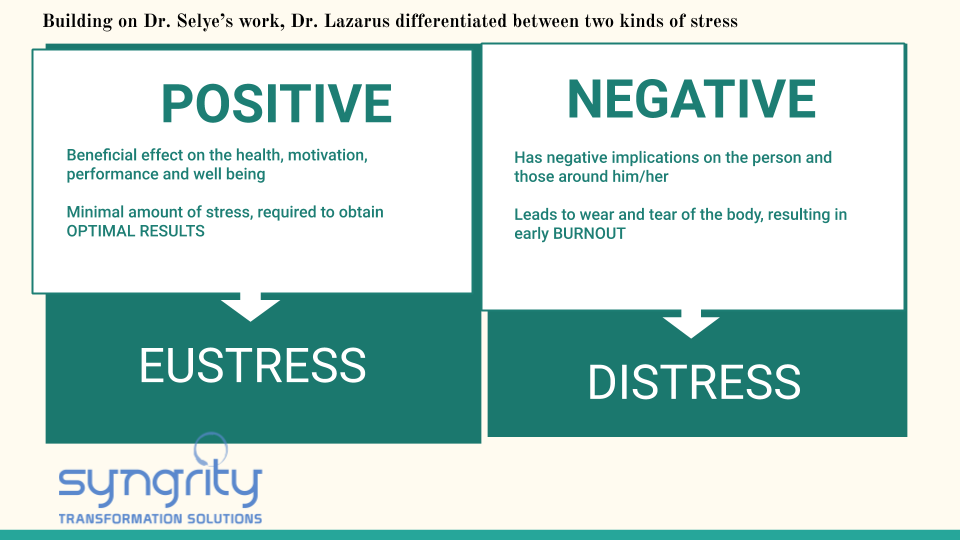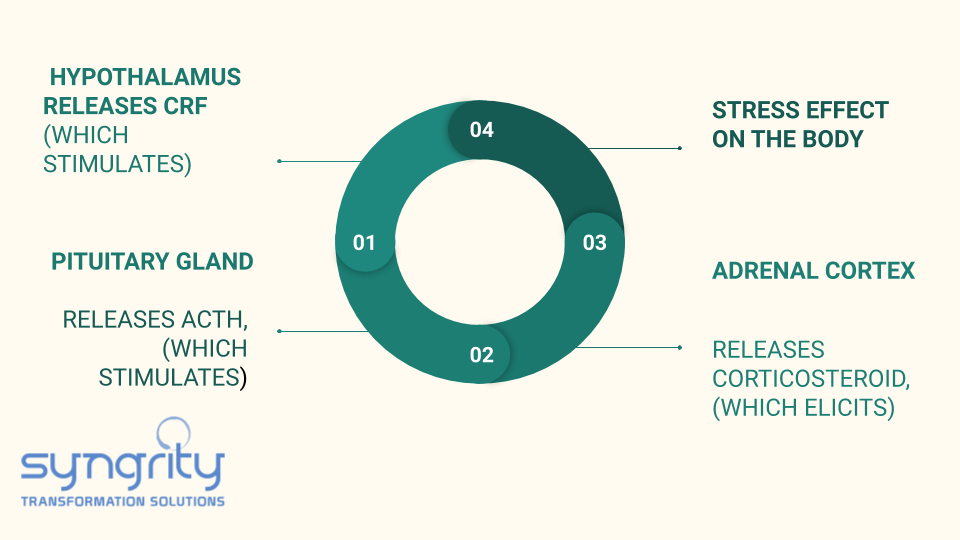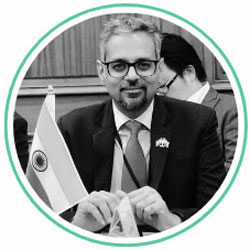“In my college days I was either stressing about my assignments, submissions and exams, if not then I was fretting about the fact that others are stressing about them and I am not!!”
This brings me to the (not so happy) realization that stress is inevitable. All of us are stressing about something or the other- be it exams, submissions, deadlines, bills, boss or our partners and this made us decide to come up with a serious of blogs that would address stress related processes. This research is the formative part of our project; KOKORO- The Heart of Stillness which would introduce to recognising stressors and to work with them via various studies that facilitate stress management and maintaining equilibrium in life.
BLOG 1.0
How do you…. STRESS?
In this blog we would be drawing your attention to the processes that are at work and responses mainly physiological, emotional and cognitive that our body gives when we experience any stressful situation.
All of us have experienced stress at one point or the other but can’t really explain what we feel. The researchers are facing the same dilemma, which is why there is no single universally accepted definition of stress. Hans Selye who defined stress as “a non-specific response of the body to any change or demand” first coined the term “Stress”. At times called the by-product of the modern day lifestyle, stress is also identified as the feeling that people experience when they are unable to cope with the financial, social, emotional, workplace or relationship related demands causing a real or perceived threat to one’s state of equilibrium. Further, the researchers have differentiated among Eustress, the positive stress that is essential for the body to perform tasks and sustain efficiency. Distress on the other hand leads to wear and tear of the body. Most definitions of stress discuss certain resultant physiological, Affective, Cognitive and spiritual responses that are experienced and observed. One stressor is potent of disrupting homeostasis at various levels of functioning like, a big project (stressor) might lead to insomnia (physiological impact) which in turn leads to sleeplessness, fatigue and irritability (emotional impact) and consequently leads to constant worrying, fearful anticipation and low self efficacy (cognitive impact).

Not the deadline but your Hypothalamus?
It is important for us to pick up signs that our systems give us so that we attend to them at a preventive stage and the impact can be controlled. Stress is inevitable. Various changes in the environment have detrimental impacts on us and most importantly majority of these changes and impacts usually go unnoticed. This elicits a vicious circle of not attending to a stressor at an initial stage and the stress load escalating to a point where one is nearing burnout. There are multiple processes that are at work once there is presence of any real or perceived threat. This blog will cover the processes and imbalances within the body and the next would cover their consequences.
Situated at the base of the brain the hypothalamus releases CRF- Corticotropin Releasing Factor which stimulates the Pituitary gland. The Pituitary gland releases ACTH– Adrenocorticotropic Hormone which stimulates the Adrenal Cortex. The Adrenal Cortex releases Corticosteroids, these hormones produce stress effect on the body. From there on the Autonomic Nervous System, which is responsible for the involuntary responses of the body, takes over. It activates the Sympathetic Nervous System which is responsible for the fight and the flight responses- Increased blood pressure, increased sweating, palpitations, allowing the body to function under stress and primes body for intense skeletal muscle activity. The Parasympathetic Nervous System on the other hand activates the rest and digest response of the body. It helps the body regain equilibrium by counterbalancing sympathetic functions.
PHYSIOLOGICAL STRESS RESPONSE

Any stressor has an emotional impact on an individual as well. Major sources of emotional stress, apart from daily hassles are traumatic events, major life changes, terminal illness or disorders like Alzheimer’s. At other instances emotional stress is experienced not because an individual is going through the aforementioned situations himself/ herself, but when a significant other, peers or even distant family members go through the ups and downs of life, one experiences emotional stress.
Another level where presence of any stressor causes disequilibrium is the cognitive level as it provokes a plethora of anxious thoughts. “The Theory of cognitive appraisal” was proposed in 1984 by Lazarus and Folkman which assesses the appraisal of stressors. This model focuses on two major components; the threatening tendency of the stress to the individual and the assessment of resources required for minimizing, tolerating or eradicating the stressor and the stress it produces. In other words, this theory explains how the brain evaluates the situation as stress evoking or not and subsequently evaluates the resources an individual has to combat stress and arrives at a response based on that interpretation.

One particular stressor can cause more than one kind of impact (physiological, emotional and cognitive), which emphasizes the role of STRESS MANAGEMENT and also the importance to pay attention to stressors at a preventive stage so that the impact can be controlled which would be covered in our upcoming blogs. Stay tuned to know more!!
Niharika Sharma holds a masters degree in Organizational Psychology with diverse experience at observing human behavior in hospital and organizational settings. She has started working with Syngrity this year,with keen interest in research and data she has worked and is still working on tool development tasks. Mainly found paying attention to dogs, she is currently a pro at stressing her boss!







 MALATI VASUDEVA
MALATI VASUDEVA VIKRAM BADHWAR
VIKRAM BADHWAR PRIYANKA KUMAR
PRIYANKA KUMAR SUMAL VARGHESE
SUMAL VARGHESE















Amazingly written. Received vital information. Glad to have read this.
Thank you Sam! We would be sharing more information in the following blogs. Stay tuned.
This content was really informative and I’m intrigued. I’d really like to know more and would definitely want to meet the author of this.
Hi Aryaman, I am glad to share that we have new blogs coming up soon that would be sharing more information on the same. We should catch up and I would love to know your thoughts and views.
Very well explained with detailed content.
Great content and beautifully elaborated.
Kudos
Today, more than half the population of India undergoes stress, but are hesitant to talk about it to the medical professionals. This is probably because of ignorance or maybe lack of knowledge about stress and its causes.
I honestly feel, this is article is more than enough for one to gain some knowledge. Very descriptive and well written I must say.
Will definitely be waiting for the next article.
Keep up the good work.
Thank you Sharang! I second you on that, mental issues are still a taboo and people are hesitant to talk about it. This is why we have decided to create a platform for discussion and spread awareness.
Definitely tuning in for the next blog. This article was very descriptive about the biological causations of stress which I loved.
Thank you Stuti! we would be covering more of such topics and aspects related to stress in the following blogs. Do share your views.
Exceedingly informative! The flow of information is noteworthy.
Very informative.
This is good information. Worth consideration as we go along our life’s.
Very well explained and useful content on an alarming issue. Waiting for your next edition elaborating the scientific process to manage stress.
Useful information!
Well explained👍
Information was very good, n it will definitely help us.
Thank you so much for giving such a informative ingredient.
Like!! Great article post.Really thank you! Really Cool.
Thanks for the sensible critique. Me & my neighbor were just preparing to do some research on this. We got a grab a book from our local library but I think I learned more from this post. I am very glad to see such magnificent information being shared freely out there. Latisha Elston Alban
Loving the info on this internet site, you have done outstanding job on the content. Tessa Mason Fasto